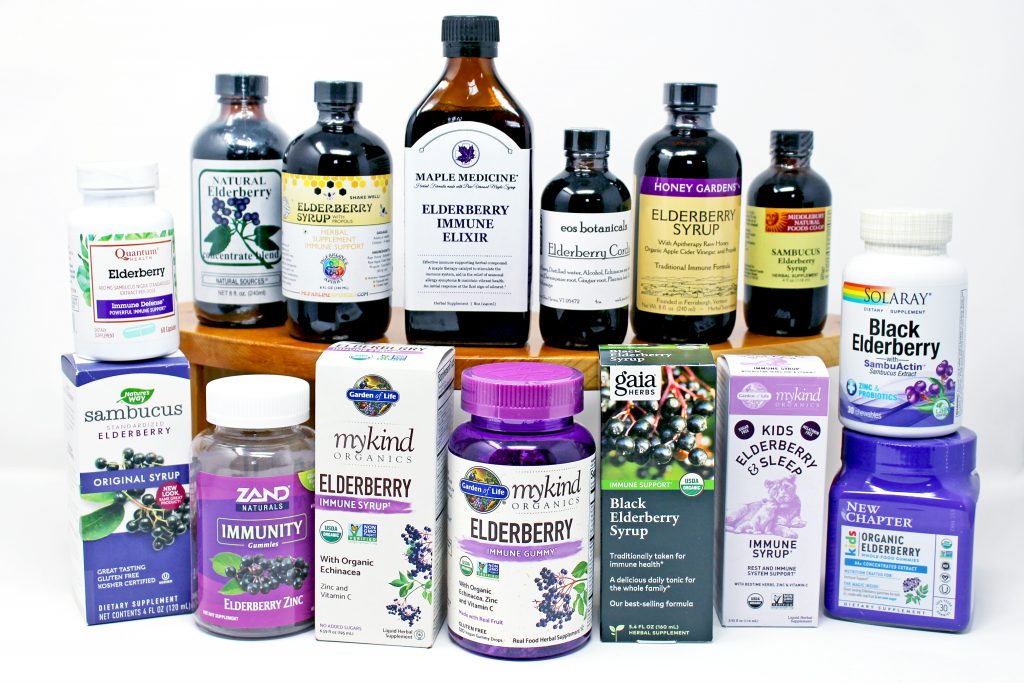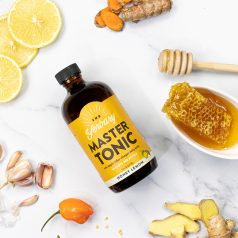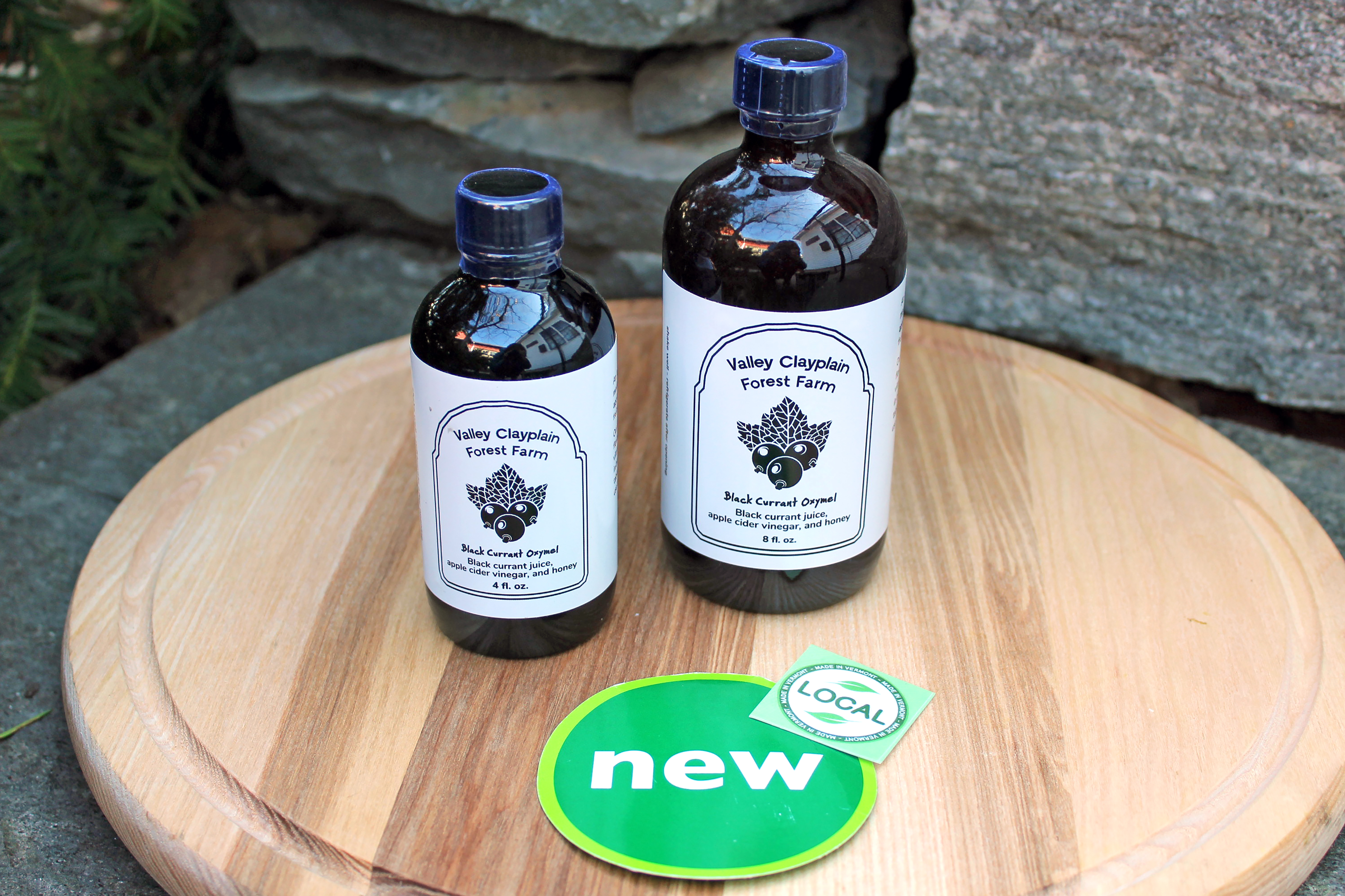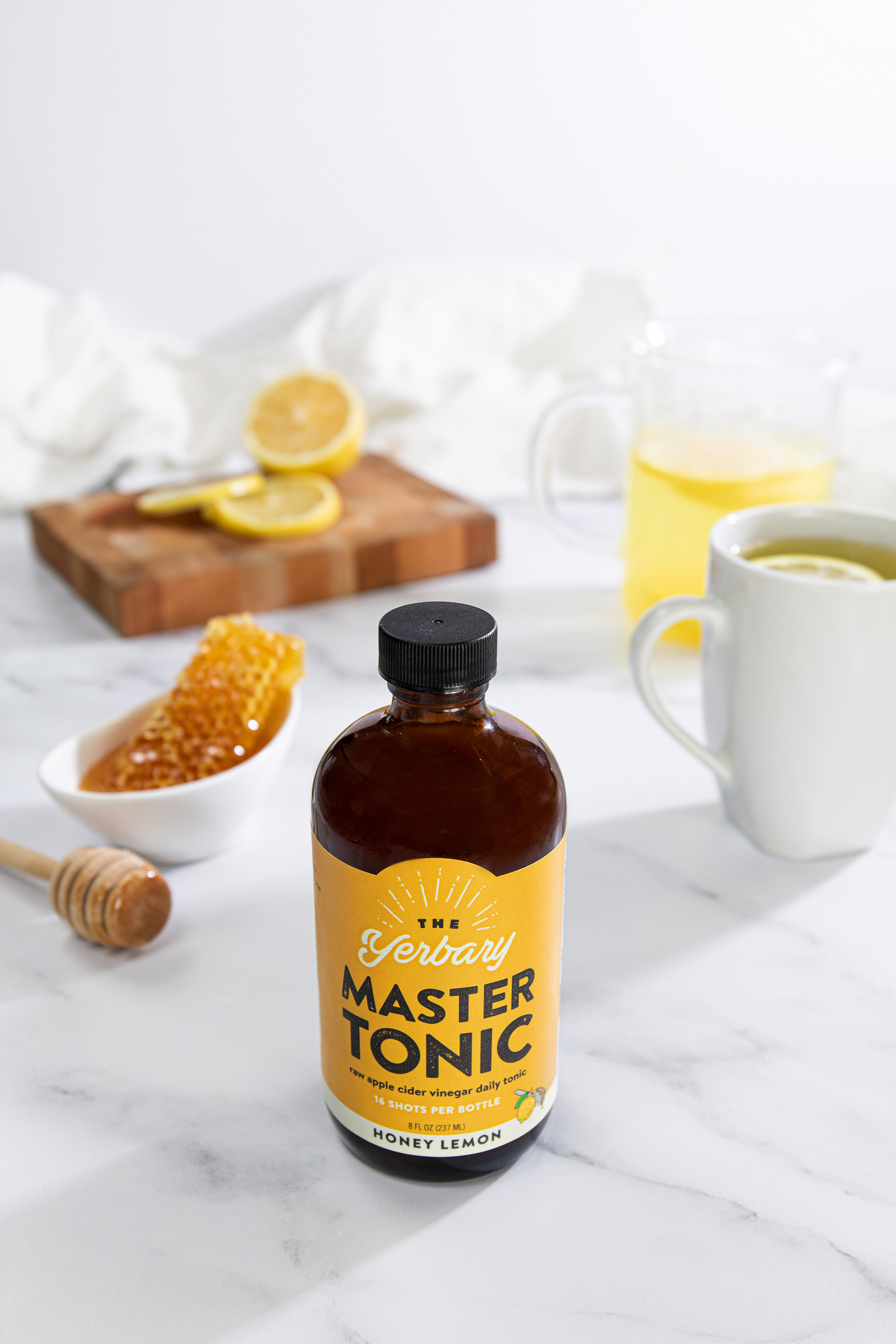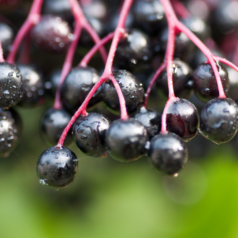
Wellness Wonders: Elderberry!
Our Wellness Wonders Spotlight for March shines brightly on a tiny but potent little berry with an extensive history of use and folklore in traditional western practices – the elderberry! For centuries, elderberries have been used to make culinary and medicinal preparations, including preserves, wines, cordials, teas, herbal infusions, and syrups. Ancient texts from Hippocrates (460 – 370BC), Dioscorides (40 – 90 AD), and Pliny the Elder (23 – 79 AD) include information about elder, indicating its longstanding value in herbal medicine, and elder has often been referred to as the “medicine chest of the common people.”
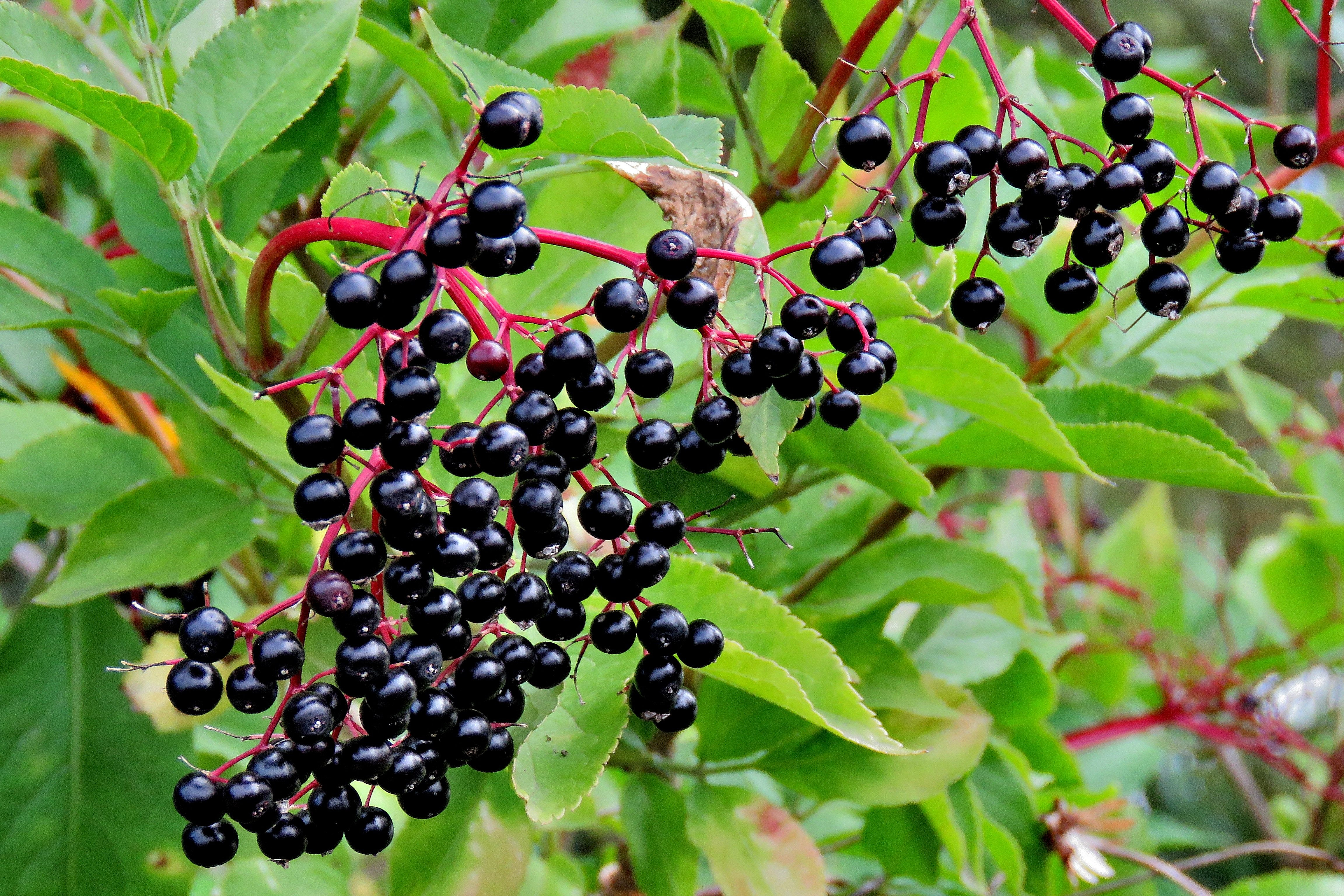
Elderberries are fruits of a hardy perennial shrub that can withstand less than ideal growing conditions. It grows in full or partial sun, tolerates the cold, and can withstand wet, clay soils. Here in Vermont, you may even see the native Sambucus canadensis growing in roadside drainage ditches, along rivers, or in wet fields. Its cousin, Sambucus nigra (black elderberry), is native to Europe, North Africa, and western Asia. The berries of both S. canadensis and S. nigra can be used for culinary and medicinal purposes, however, the seeds within the raw fruit contain a component called sambunigrin which can cause intestinal distress if ingested in large quantities, so it’s ideal to cook, tincture, ferment, or otherwise prepare the berries prior to consumption. It’s also important to note that the stems and leaves of the elder plant are toxic and should be removed prior to making an elderberry or elderflower preparation.
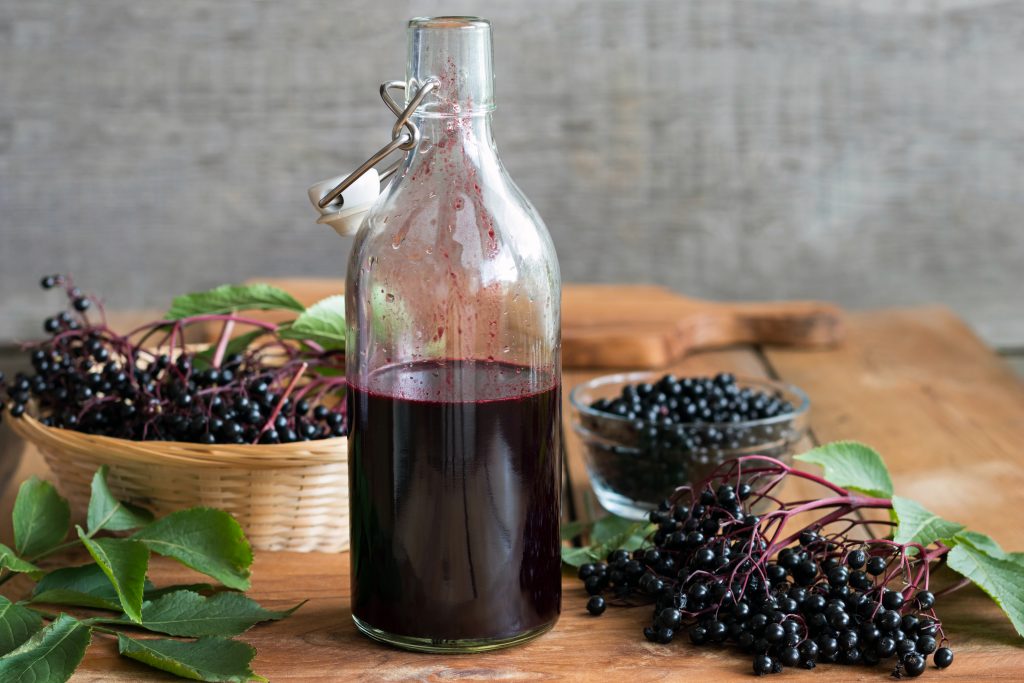
The berries, flowers, and bark of the elder (Sambucus) plant have long been prized by herbalists across the globe, and modern studies have also substantiated the berries’ ability to help maintain normal, healthy functioning of our immune system. This makes elderberry an excellent plant ally to promote resilience during times when our body’s systems are particularly stressed. While elderberry is most famous for being a cold and flu herb, its gifts extend well beyond sniffle season, promoting strong bones and healthy hair, protecting the heart and eyes, and supporting digestion, according to herbalist Emily Han of Learning Herbs.
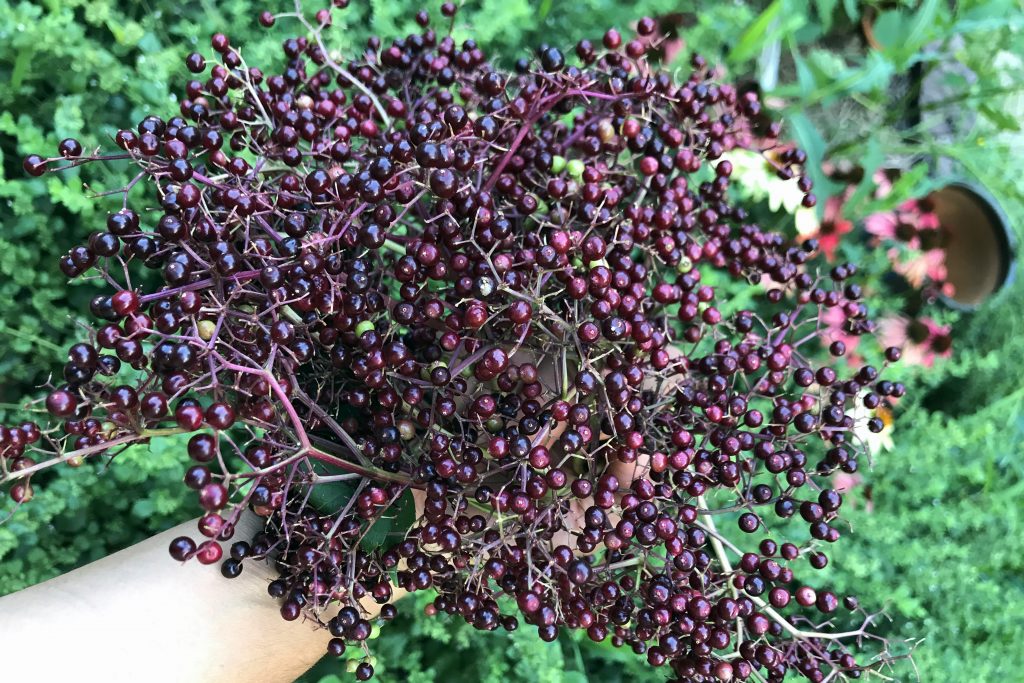
Whole elderberries are typically prepared as teas, tinctures, syrups, wine, and cordials. They can also be used much like other berries in various recipes, including scones, pies, cakes, muffins, jellies, and vinegars. Beyond their medicinal properties, the berries pack a nutritious punch, as they are rich in flavonoids, boast a high anti-oxidant count, and are quality sources of vitamin C, vitamin A, bioflavonoids, beta-carotene, iron, and potassium, according to herbalist Rosemary Gladstar. You can find excellent tips and recipes for preparing elderberries here, here, and here. And a staff favorite fermented elderberry honey recipe can be found here.
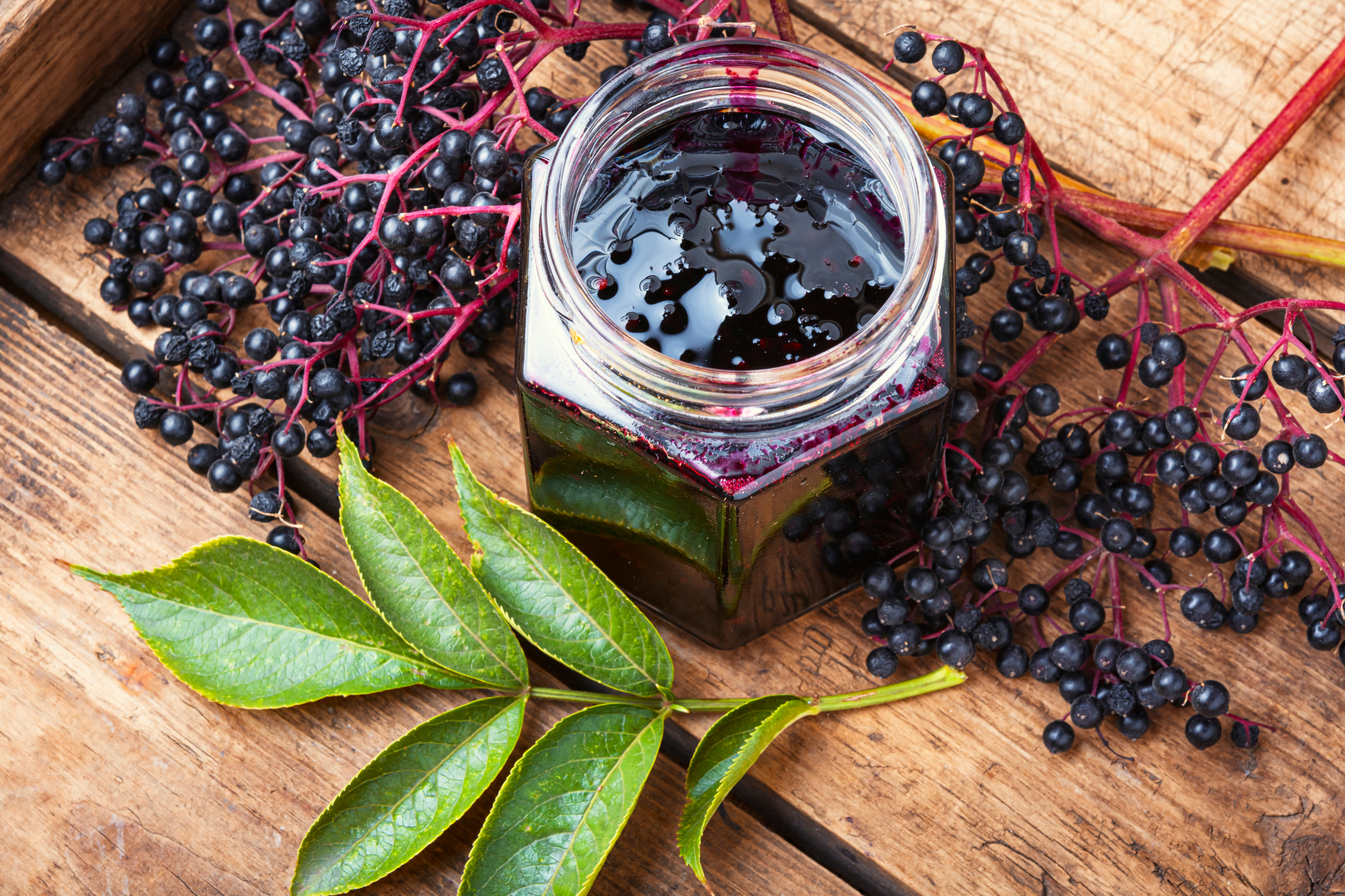
In addition to providing nutritious medicinal berries, the elder shrub produces beautiful white flowers that bees and butterflies love. According to Herbal Academy, the flowers have has been used since ancient Egyptian times for both medicinal purposes and as a beauty aid, as they were believed to help reduce wrinkles and age spots. A stronger infusion was often used to help heal skin rashes, eczema, measles, chapped skin, and sunburns; and flowers steeped in oil were often used to alleviate diaper rashes. The flowers have many wonderful culinary uses, as well. On a hot summer day, an elderflower cordial makes a most fragrant and refreshing treat. Click here for more elderflower recipes.
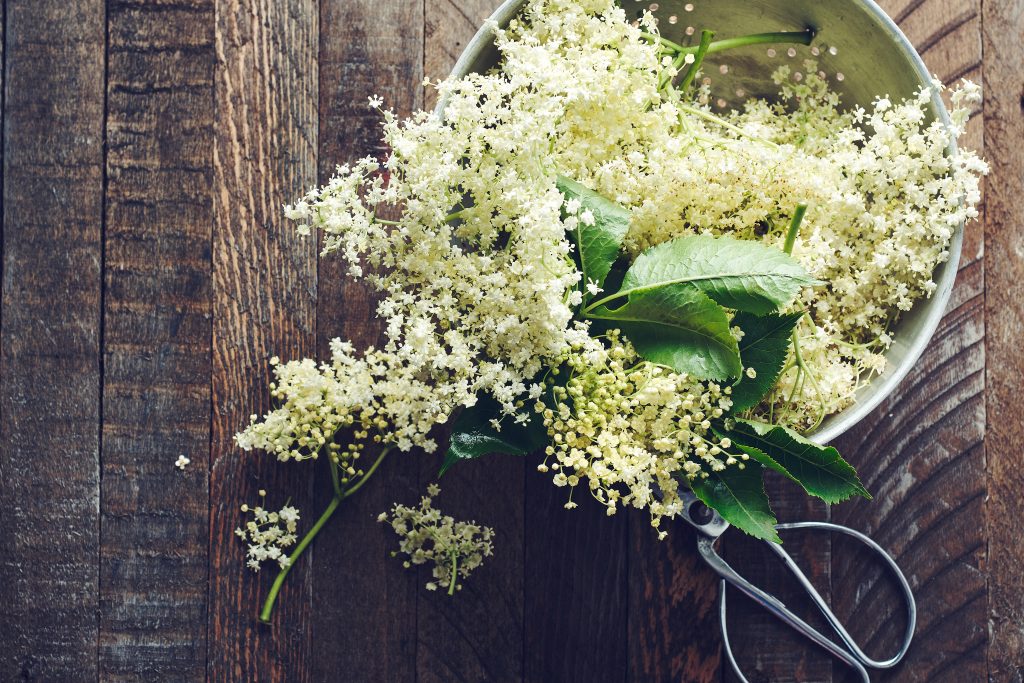
Here at the Co-op, we offer an extensive lineup of elderberry products. There are local options from Eos Botanicals, McFarline Apiaries, New Chapter, and Maple Medicine, along with some of our favorites from trusted brands beyond Vermont’s borders. If you’re wondering which elderberry product is right for you, don’t hesitate to ask a member of our Wellness team! They’d be happy to help you select a product to suit your needs.
